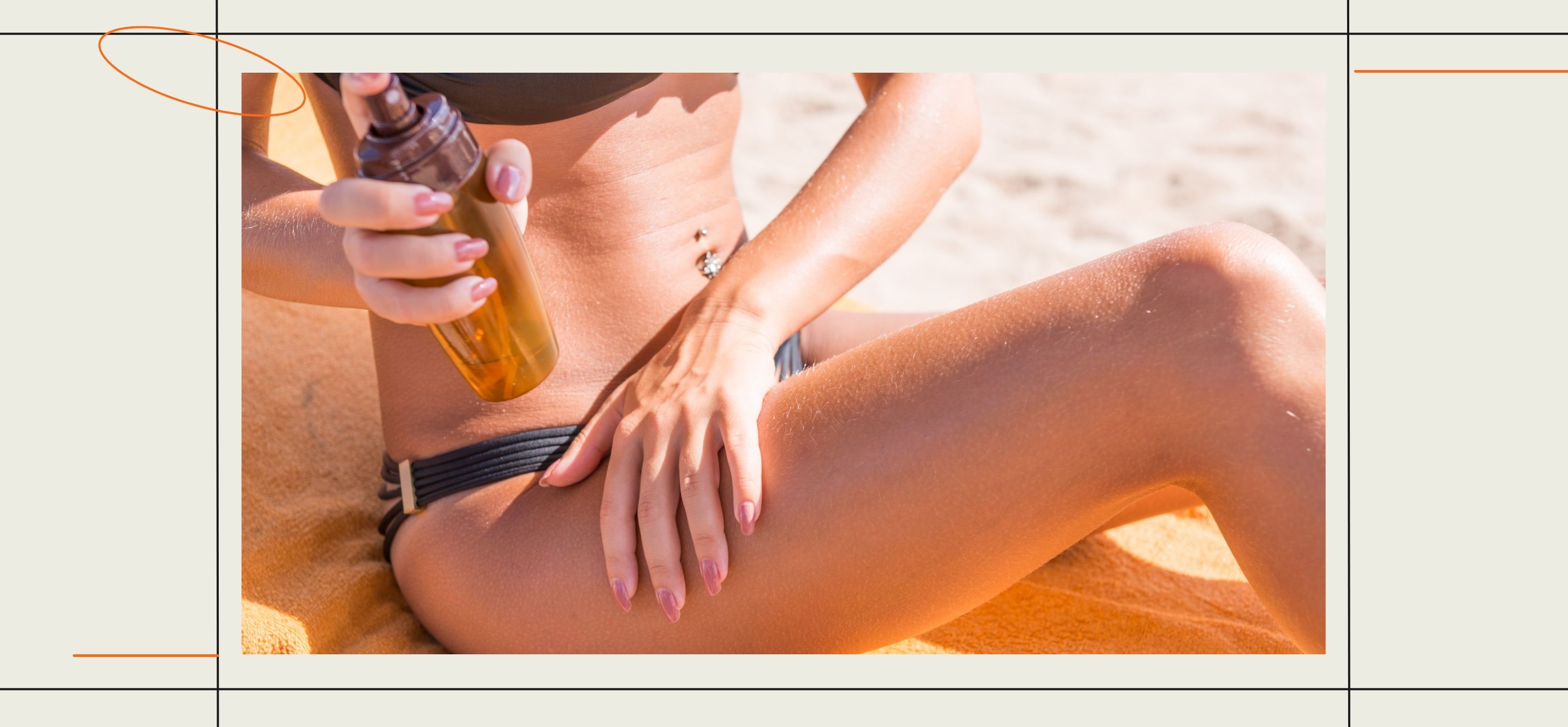
Summer is here, and the allure of a sun-kissed glow is simply hard to resist. For many, tanning oils become a constant product in their beach bags, promising to help get that perfect tan faster. But before you slather on that bottle of tanning oil, considering what it does to your skin is equally important. Is it truly beneficial, or does it come with hidden side effects?
In this blog, we uncover what tanning oil is, what it does to your skin, how it works, the differences between SPF and non-SPF tanning oils, and the potential risks associated with their use.
What is Tanning Oil?

Tanning oil is a product that helps accelerate the tanning process while exposing your skin to sunlight and increasing melanin production, giving you that perfectly tanned skin tone. These oils usually contain a combination of moisturizers, fragrances, and essential oils that help hydrate the skin while allowing UV rays to penetrate deeper.
Unlike sunscreens that block UV radiation, tanning oils often lack sufficient SPF, making them effective for getting that melanin-rich skin. However, this also means that your skin is vulnerable to higher levels of UV radiation, which can cause sun damage and potentially lead to severe skin concerns.
Several studies have also stated that high levels of sun exposure can lead to various skin conditions and may even increase the risk of skin cancer. So, while the instant satisfaction of a deep tan may be tempting, it’s important to consider its lasting impact on your skin.
What does Tanning Oil do?
.jpg?updatedAt=1722334240868)
When you apply sun tan oil to your skin, the oily texture acts as a barrier, locking in moisture while allowing UV rays to penetrate deeper into the skin. The oil absorbs the sun’s rays, stimulating melanin production and offering perfectly bronzed skin.
Some tanning oils contain sunflower and coconut oil, which can soothe and hydrate the skin. While this may feel great, it’s essential to remember that such oils can also increase the risk of sunburns if not used correctly.
Also, the process of getting a tan can vary significantly among individuals. People with fair skin may require additional care when using tanning oil. On the other hand, those with a little darker skin may already have a higher melanin concentration, potentially leading to faster results. Considering such differences, it’s crucial to approach tanning oils with caution.
Is Using Tanning Oil Safe?

While they might create that sought-after glow, they can pose significant risks to your skin. Many people apply tanning oil without considering the potential consequences, believing they are protected enough to stay in the sun longer. Let us clarify: tanning oils do not offer sufficient sun protection, and prolonged sun exposure can lead to long-term skin damage.
These tanning oils also contribute greatly to premature skin aging. Spending too much time in the sun, especially without adequate protection, can lead to wrinkles, fine lines, age spots, and undesirable crow’s feet.
Another significant concern related to its usage is the link to skin cancer. Despite the allure of a golden tan, it is crucial to weigh the potential risks. Research indicates that even moderate tanning has a higher chance of developing skin cancer later. So, knowing the consequences of tanning oil without proper sun protection is vital.
Tanning Oil with SPF: Is it the Right Choice?

Some of the best oils to tan now come with added SPF, sparking curiosity about their safety as an alternative to traditional sunscreens. Tanning oil with SPF offers protection against UVA and UVB rays while letting you achieve that sun-kissed skin. However, these products often have a lower sun protection factor than regular sunscreens.
If you use a tanning oil with SPF 15, you might still be exposed to harmful radiation, upping the risk of skin damage, premature aging, and even skin cancer. So, while those oils with SPF protection give you some coverage, according to experts, they shouldn’t be your go-to for sun safety.
Dermatologists recommend combining sun tan oils with a broad-spectrum sunscreen boasting at least SPF 30 for optimal protection. If you want to soak up the sun yet protect your skin, look for hybrid products that offer the best of both worlds. Apply sunscreen first, then layer on the tanning oil to shield yourself from harmful rays while achieving that perfect tan.
Is There a Safe Tanning Alternative?

Apart from using tanning oils, there are several safer alternatives if you’re seeking a sun-kissed glow without the risks associated with tanning oils.
- Self-tanning products
Self-tanners or sunless tanning products are a popular and safe alternative to traditional tanning methods. These products contain dihydroxyacetone (DHA), a color additive that offers a temporary tan. In lotions and spray forms, self-tanners help you achieve sun-kissed skin without basking in the sun. - Bronzers
Bronzers are cosmetic products that provide an immediate tan effect. They come in powders, creams, and sprays and can be easily applied to the face and body to give perfectly tanned skin. Bronzers are ideal if you’re looking for a temporary tan that is easy to wash off. - Spray tanning
Professional spray tanning services use a fine mist of DHA to create an even and natural-looking tan. This method is quick and can be customized to achieve the desired shade. Spray tans typically last about a week and fade gradually. - Gradual sun exposure
If you choose to tan naturally, start with short, protected sun exposure sessions and gradually increase the time spent in the sun. Always wear a broad-spectrum sunscreen with at least a SPF of 30 or higher.
When selecting sunless tanning products, look for those free from parabens and artificial fragrances. Additionally, ensure the product suits your skin type to avoid any irritation.
Tanning oil may promise a beautiful, bronzed glow, but it’s essential to consider the impact on your skin. Understanding what tanning oil does, its potential risks and safer alternatives allows you to make informed choices about your tanning routine.
Ultimately, prioritizing skin health should always come first. Various ways are available to achieve that coveted tan without compromising your skin. But if you’re still dead set on using tanning oils, use them cautiously along with sufficient SPF, and make sure you reapply the sunscreen every two hours. After all, a radiant glow doesn’t have to cost you your skin’s health.




